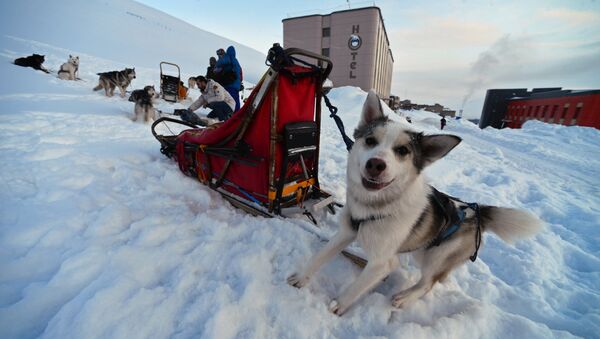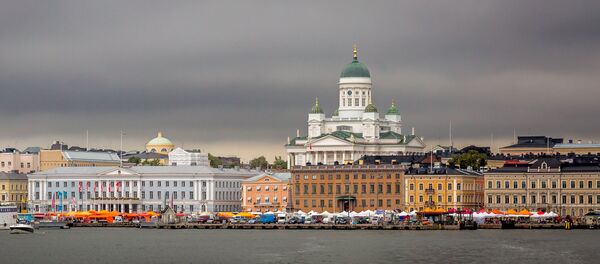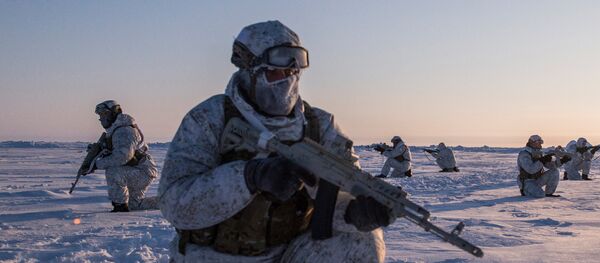The Russian Foreign Ministry has voiced its objection to the alliance's plans to hold a meeting of lawmakers from NATO countries on the Svalbard Islands next month.
"In the context of NATO's current course on 'restraining' Russia, accompanied by unprecedented military preparations near the borders of our country, attempts to drag Spitsbergen 'under the wing' of the military-political bloc, and holding events there under its aegis violates the spirit of the 1920 [Spitsbergen] Treaty," the Foreign Ministry said in a statement released Wednesday.
"We regard this course of action as provocative," The Ministry added.
Article 9 of the Treaty prohibits Norway from establishing any military objects on the territory, including naval outposts or fortifications that could be used "for warlike purposes." Accordingly, while the Treaty does not expressly forbid the Western alliance from staging a conference in the archipelago, its spirit does restrict the military-related use of the territory.
The Russian Foreign Ministry has also taken issue with the fact that the NATO seminar will be discussing the future of the Arctic region in the military and geopolitical context.
"In the Arctic region, there are no issues demanding NATO's participation, let alone any military prescriptions. The escalation of tensions does not meet the long-term interests of the countries of Northern Europe, and weakens their security, rather than strengthening it," the Ministry statement stressed.
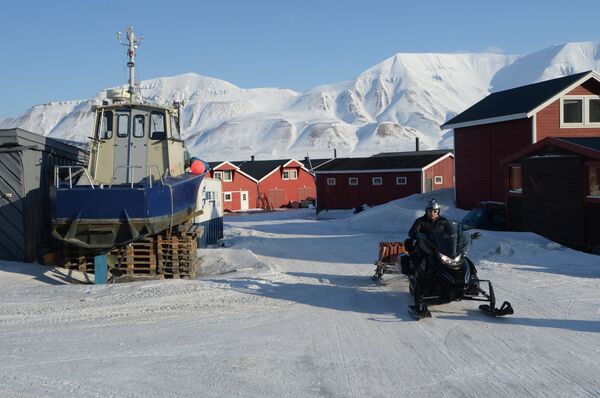
What's driving the Western alliance's newfound interest in the northern archipelago?
Pondering the issue in an analysis piece for RIA Novosti, columnist Alexander Khrolenko recalled that militarization of the Arctic was a significant danger, since the shelf and sea areas of the region, rich in hydrocarbons and other resources, has yet to be conclusively demarcated. This, accordingly, makes the region prone to border disputes.
"The situation with Svalbard is even more intricate," the journalist explained. "On the map of Flemish cartographer and geographer Gerardus Mercator, published in 1569, on the site of present day Spitsbergen was a group of seven islands dubbed the 'Saintly Russian Isles'. Before and since, these islands were populated by Russian Pomor settlers." Since then, the archipelago has been controlled by the Netherlands, the UK, Denmark, Sweden and finally, independent Norway.
However, under an agreement dating back to 1872, the archipelago was denoted not to be the exclusive possession of any one state. In the early 20th century, vast reserves of coal were found on the archipelago (10 billion tons' worth, or about 20% of total Russian reserves at the time) which aroused great interest in Russia, the UK, Norway, the Netherlands, and the US.
In 1947, Norway's parliament declared that the Soviet Union, along with Norway, was a state with special economic interests in Svalbard. In 1977, Oslo unilaterally established a 200-mile economic zone around the archipelago, a delineation which the Soviet Union, and later Russia, would dispute. The entire eastern section of the 200-mile area around the islands fell in waters which Russia, under its proposed the sectoral delineation of the Arctic, considered its own. As a result, the area in question was cut in half, but disputes continue.
"The military-political temperature on Svalbard warmed up dramatically in April 2015," Khrolenko noted, "when under the pretext of the crisis in Ukraine, the Norwegian Foreign Ministry expressed its outrage over the visit of Russian Deputy Prime Minister Dmitri Rogozin to the archipelago."
At the time, Oslo marked their intension to strengthen measures for controlling entry to the region, even though Rogozin came to the region on a civilian flight, not via the Russian Northern Fleet.
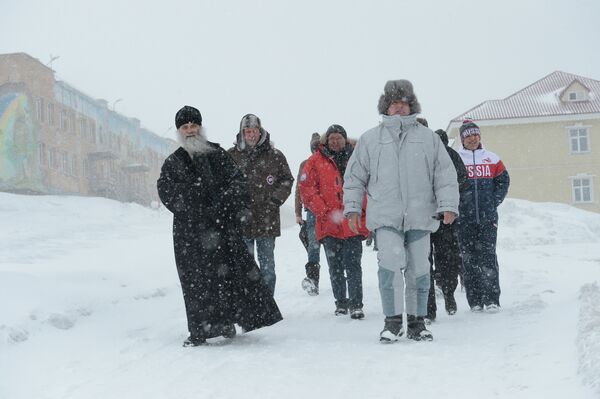
Next month, NATO will stage its seminar on in Svalbard. This, Khrolenko suggested, was "not only a sign of double standards toward officials…but the obvious discrimination of the Russian deputy prime minister, and an open desire by a group of nations to take military advantage of territorial disputes."
Apart from the recognized Arctic countries (Russia, the US, Canada, Iceland, Norway, Denmark, Sweden, and Finland), another 13 countries are attempting to carve out their own sector in the Arctic, including nearly a dozen European states, plus Japan. China too has plans in the region, including a base in Svalbard and its own icebreaker.
"It's worth noting," Khrolenko wrote, "that the majority of the Arctic countries' military potential in the region is incomparable to that of Russia. This perhaps, is why all the disputes so far have maintained a peaceful, polemical character."
In this context, the journalist warned that "the involvement of NATO as an interstate arbitrator, just like the involvement of the neutral countries of Northern Europe into the alliance, can lead to an irreversible aggravation of contradictions in the Arctic, and even scenarios for military conflict."
"Obviously, this is unacceptable. Svalbard should remain a demilitarized zone, free from any structures or activities by the North Atlantic Alliance," Khrolenko concluded.
